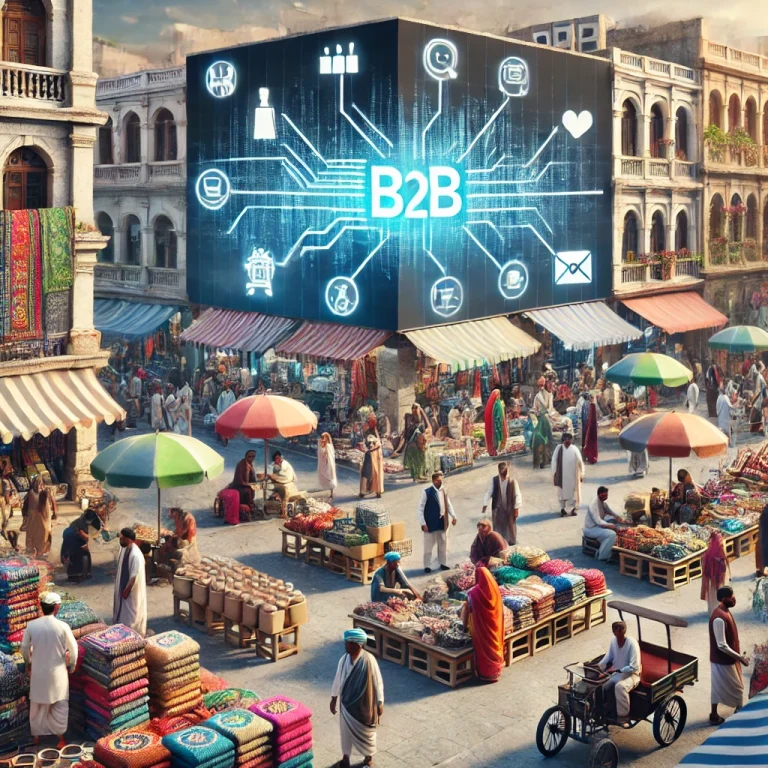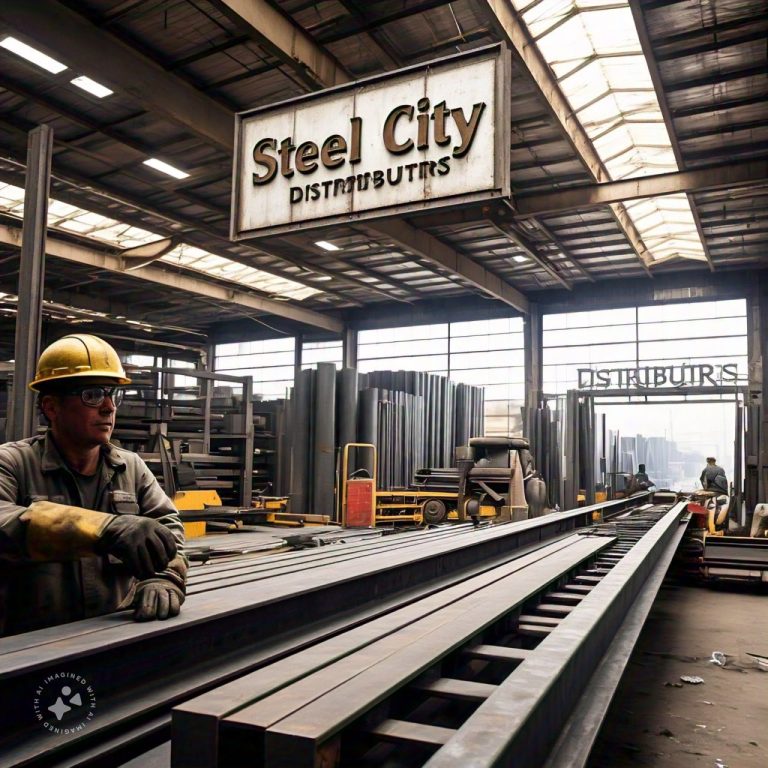Entering the business-to-business (B2B) market as a small-scale manufacturer in India can feel like navigating a maze of distribution channels. Wholesaler vs distributor – the question of where to start—whether with wholesalers, distributors, or directly approaching retailers—is crucial for ensuring your products reach the right audience efficiently and profitably. The answer isn’t always straightforward, but this article offers a guiding framework to help you make the best decision for your business.
Why Wholesalers Might Be Your Best Bet (for Now)
1. Lower Barriers to Entry
Wholesalers typically require smaller minimum order quantities (MOQs) compared to distributors. As a small manufacturer, cash flow and inventory management are often tight, and working with wholesalers can be a cost-effective solution. Wholesalers also have fewer stringent requirements, making it easier for you to establish initial business relationships without the pressure of meeting high demands right away.
Example: If you’re launching a new line of herbal skincare products, working with a wholesaler means you don’t need to manufacture thousands of units upfront, which reduces your financial risk.
2. Broader Reach for Your Products
Wholesalers are generally connected to multiple modern trade outlets, traders and retailers – giving your products the visibility they need in the market. By choosing to partner with wholesalers, your product could reach various regions and sectors without you having to handle those relationships directly. This broadens your market footprint and provides you with valuable data on which areas and industries show the highest demand for your products.
Example: A wholesaler in Mumbai might supply to multiple small retailers across Maharashtra, effectively giving your products presence in places you wouldn’t have reached on your own.
3. Flexibility in Payment and Pricing
Wholesalers tend to offer more flexible payment terms than distributors, who often require formal contracts, exclusivity, or higher up-front payments. By dealing with a wholesaler, you might have the opportunity to negotiate better pricing, terms, or even payment schedules that are more in line with your small-scale operations.
Example: A startup manufacturing sustainable packaging might need to price competitively. With a wholesaler, you can adjust pricing more frequently based on feedback, without the constraints that come with a formal distributor contract.
4. Wholesalers as Market Insight Hubs
Wholesalers often act as market trend barometers, since they deal directly with a variety of buyers. This means they can offer you valuable insights on product demand, pricing trends, and customer preferences. Feedback from wholesalers can help you adjust your production, improve product features, and even identify potential new markets.
Example: If you notice that a particular flavor of organic tea is selling faster through a wholesaler, it can signal higher demand, prompting you to focus on producing that variant more intensively.
Important: How To Find Wholesalers ?
Wholesalers can be found in wholesale markets. There are thousands of wholesale markets across India – visit them, talk to wholesalers, get market feedback and move accordingly. For more information on wholesalers and wholesale markets- please check the blog B2B-Bazaar
Wholesalers are available in online also – online distribution platforms like vanik.com has listed thousands of wholesalers from all over India. In reality, there is no water-tight separation between distributor and wholesaler. A wholesaler could become distributor eventually. Also, many distributors may like to work as wholesaler initially.
For more information – please read Understanding Indian Distribution Models
The Case for Distributors: When Should You Consider Them?
1. Higher Barriers to Entry but Greater Market Penetration
Distributors, by contrast, tend to have larger MOQs and stricter requirements. These higher barriers can be daunting for small-scale manufacturers but come with the reward of deeper market penetration. Distributors typically focus on specific geographic regions or industries and have strong, established relationships with customers. This means they can push your product into niche markets or high-demand areas that are hard to reach otherwise.
Example: Once your herbal skincare line gains traction, a distributor might be able to get your products into high-end retail chains or specialty stores, providing you with premium placement.
2. More Control Over Sales and Distribution
With a distributor, you gain more control over how your product is represented in the market. Distributors take on the logistics, inventory management, and even some aspects of sales. However, this usually comes with an expectation of exclusivity, meaning you’ll have to commit to a single distributor in certain regions or product lines.
Example: If you’re confident in your brand and want to ensure that your product is marketed a certain way—perhaps as a luxury or premium product—working with a distributor allows you to enforce these standards across the board.
Important: How To Find Distributors
Unlike wholesalers, distributors are scattered across the country. Moreover, verification and reliability are crucial in distributor selection as they act as your extended arm in the market. Fortunately, vanik has made this task easy with online lists of thousands of distributors, super stockists, C&F agents from all over India. They all registered at Vanik.com and Vanik’s team interviewed them and collected all relevant information before displaying complete profile at vanik.com. Here’s verified distributor lists
Wholesaler vs Distributor – Why Start With Wholesaler ?
1. Testing the Waters with Lower Risk
Partnering with a wholesaler allows you to test the market with minimal risk. You’ll be able to see how your products perform, gather feedback, and adjust your strategy before making larger commitments to distributors. This is particularly important for small-scale manufacturers who may not yet have the production capacity or brand recognition to meet distributor demands.
2. Building Credibility in the Marketplace
Starting with wholesalers helps you build credibility in the B2B market. Once your product is established and performing well in wholesale channels, it becomes easier to transition to working with distributors. Having a proven track record with wholesalers shows potential distributors that your product has market demand, reducing the perceived risk on their end.
Example: Your small textile business might start by selling through wholesalers in local markets. As your brand gains recognition for quality and consistency, you can approach distributors who will appreciate your established presence.
3. Gradual Scaling: From Wholesalers to Distributors
Once you’ve successfully built a network of wholesalers and established demand for your products, you’re in a better position to scale up and begin working with distributors. Distributors can help you penetrate deeper into the market, reaching new customers and managing larger volumes of stock. But this scaling process should happen gradually, once you’ve proven your product’s worth through your wholesale channels.
Retailers: A Direct but Challenging Route
Directly approaching retailers may seem tempting, as it eliminates the middleman and theoretically increases your margins. However, for a small-scale manufacturer, this strategy comes with significant challenges:
- Inventory Management: Retailers often require smaller order sizes, meaning you’ll need to manage a larger number of transactions and relationships.
- Sales Effort: You’ll need a sales team or strategy to directly engage with retailers, which requires time and resources.
- Limited Reach: Without wholesalers or distributors, your reach may be limited to only the retailers you can personally engage, making it harder to scale quickly.
Retailer relationships may work well in specific scenarios, such as local markets where you have direct connections. However, for broader market penetration, starting with wholesalers (and eventually moving to distributors) often provides a more scalable approach.
Key Differences Between Wholesalers and Distributors
| Wholesaler | Distributor |
|---|---|
| Lower MOQs | Higher MOQs |
| No exclusivity required | Often requires exclusivity |
| Sells to multiple distributors and retailers | Typically represents your brand exclusively |
| Bulk sales focus | Targeted market penetration |
Conclusion: Start Small, Scale Strategically
For small-scale manufacturers in India entering the B2B market, the safest and most strategic route is to start by working with wholesalers. They offer lower barriers to entry, greater flexibility, and valuable market insights. Once your product gains traction, transitioning to distributors can help you penetrate deeper into the market and manage your supply chain more effectively. And while direct-to-retailer approaches have their advantages, they’re often best reserved for later stages of growth or niche markets.
By approaching the market in phases—starting with wholesalers, and moving to distributors as your brand grows—you’ll be able to scale sustainably while minimizing risk.


